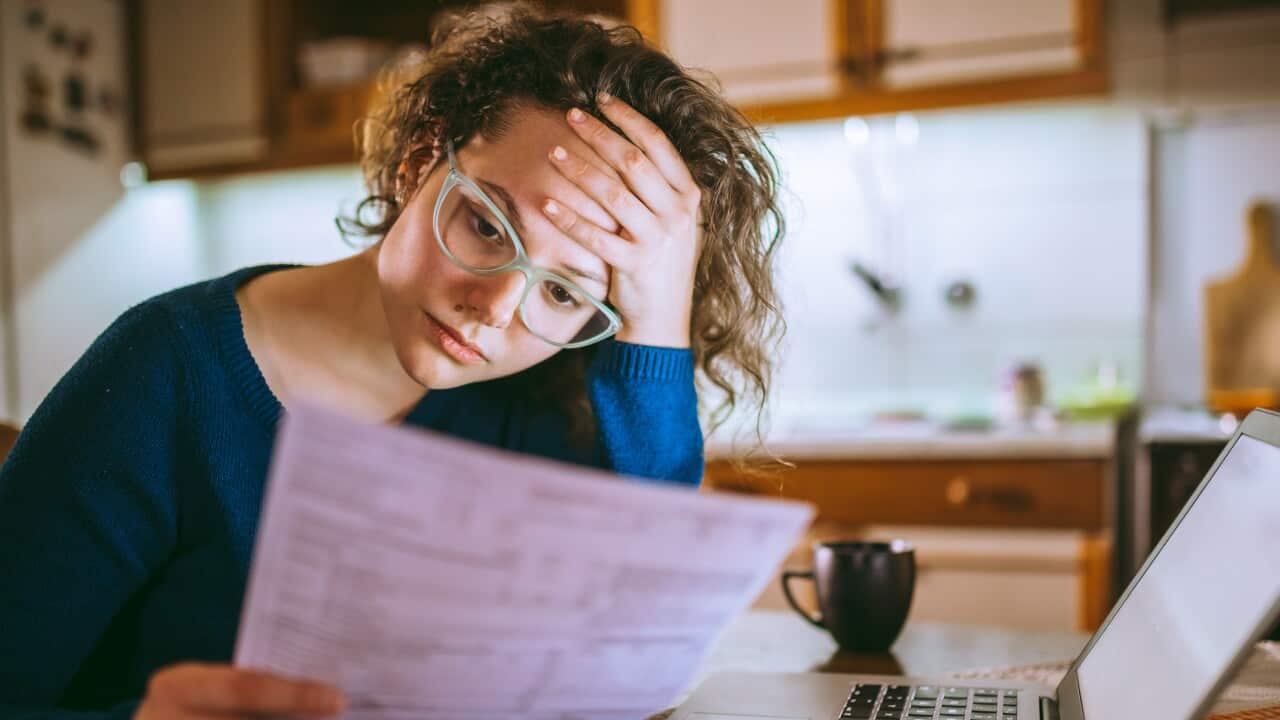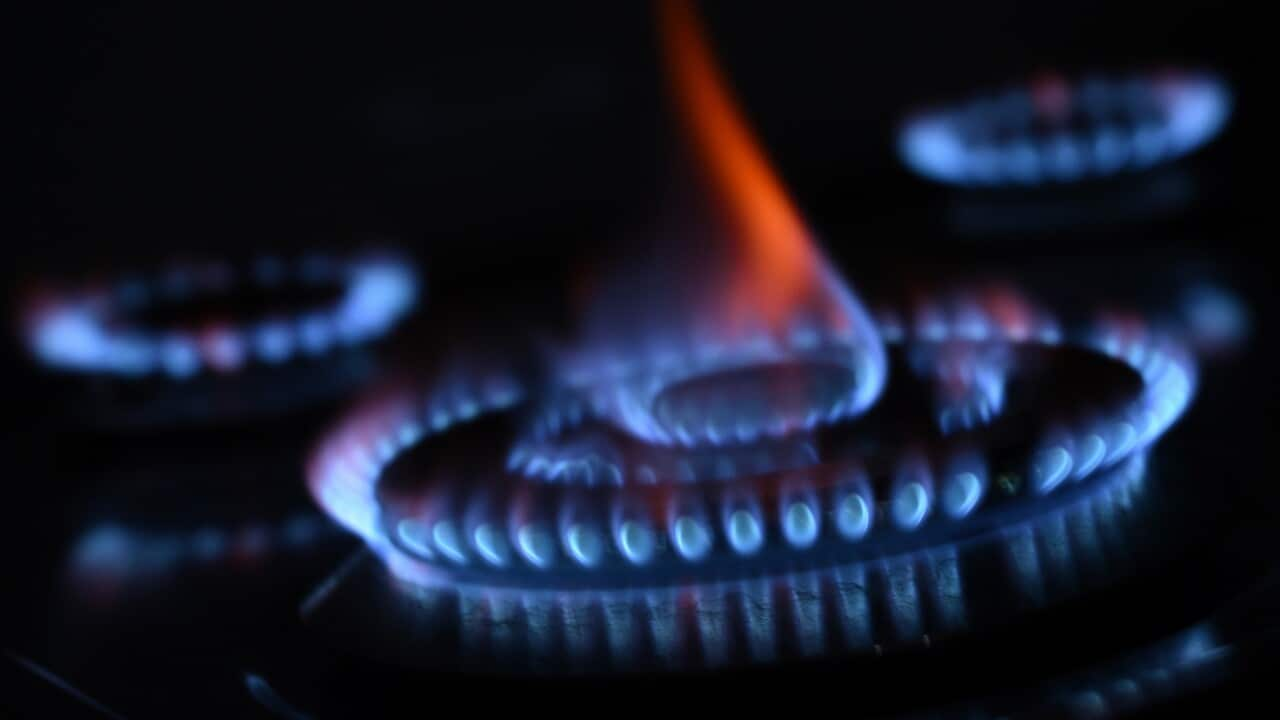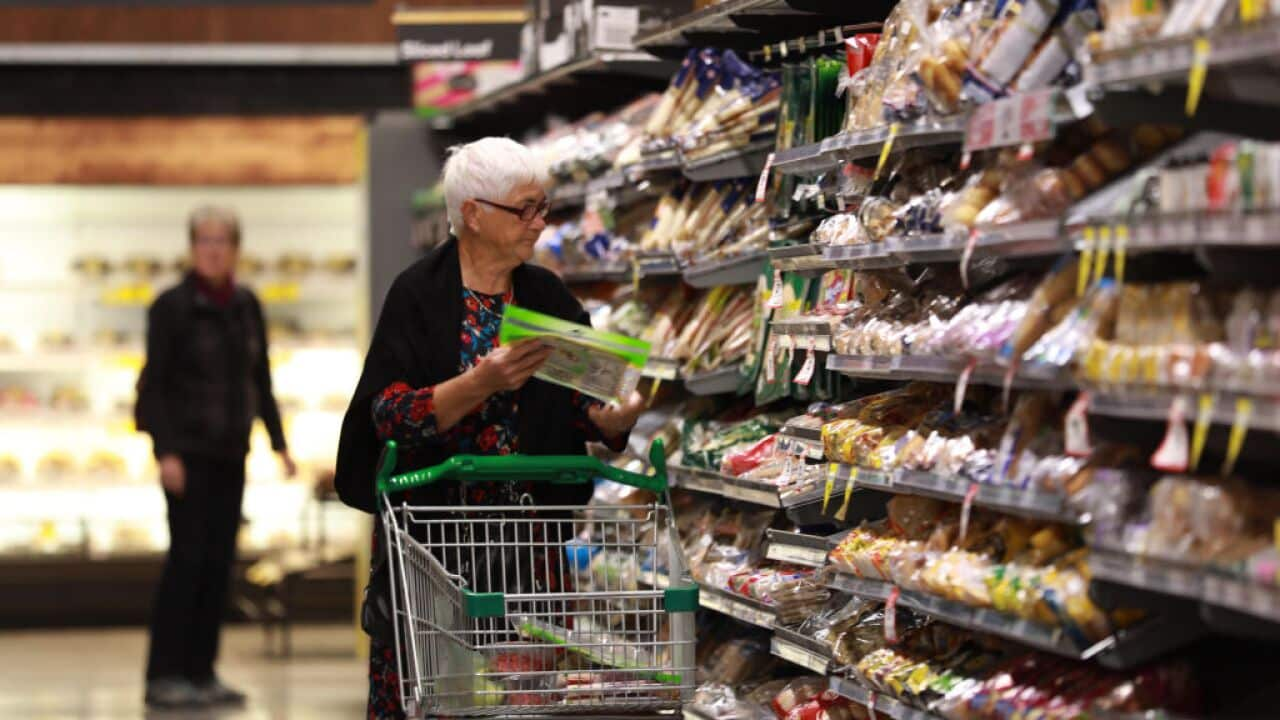Key Points
- New figures from the Australian Bureau of Statistics show the pace of inflation has slowed more than expected.
- The monthly Consumer Price Index recorded a rise of 4.9 per cent in the 12 months to July, down from 5.4 per cent.
- Economists say it's a positive sign, but warn it is too early to celebrate the end of the cost of living crisis.
The inflation rate has dropped, but economists have warned it may be some time until we see a significant change in cost of living pressures.
On Wednesday, the Australian Bureau of Statistics (ABS) released its monthly Consumer Price Index (CPI) indicator, which rose 4.9 per cent in the 12 months to July, down from 5.4 per cent in June.
Economist Chris Richardson said while inflation easing is positive news, it's too early to celebrate the end of the cost of living crisis.
"It happened to be a good month in terms of petrol prices going down (and) fruit and vegetables going down, and some of the good news there will be a bit temporary," he said.
"Some of the bad news - things like rent rises - will hang around.
"There are reasons to say it's not quite as good as it looks, but even allowing for that, this is a pretty good number."
So what will the latest inflation figures mean for you, and when will cost of living pressures start to ease?
What did the latest CPI data show?
The inflation rate came in lower than expected. Markets were anticipating a 5.2 per cent annual lift in inflation in the 12 months to July. The rate of inflation is continuing to pull back from its peak of 8.4 per cent in December.
Housing was among the biggest contributors to the annual increase in July, growing 7.3 per cent, but was down a touch from 7.4 per cent in June.
Electricity prices picked up 15.7 per cent in the 12 months to July in line with price reviews across all capital cities.
Food and non-alcoholic beverages moderated further, growing 5.6 per cent in the 12 months to July, down from 7 per cent in June.
Automotive fuel prices also helped to offset the annual rise in inflation, falling 7.6 per cent.
"It's pleasing to see inflation is moderating but we know it will remain higher than we'd like for longer than we'd like," Treasurer Jim Chalmers said.
Does this mean the cost of living crisis is coming to an end?
Professor Gigi Foster from the UNSW School of Economics said while prices are going up, they are not rising as steeply.
"Most analysts, and the ABS itself, are saying that inflation hit a peak a few months ago and is now cooling off a bit, but we are still seeing increases in some categories," Foster said.
"So for a household, whether or not - or how much - you feel the stress of these increases is going to depend on your basket of goods that you're buying, or whether or not you are renting or have bought a home and are paying mortgage rates."
The concept of the cost of living does not only refer to the prices we pay for goods and services, but also how affordable those prices are.
Richardson said: "Cost of living pressures are best thought of not just as prices, but prices relative to wages."
"By the time we have data on these months of July, August and September, you will finally start to see wages are starting to rise faster than prices.
"That will be a grind, it will be a repair job on the purchasing power of wages that will take years, but it is actually already beginning."
When will interest rates go down?
Richardson said he does not believe the Reserve Bank of Australia (RBA) will implement any further rate hikes in the near future.
The RBA raised interest rates 12 times after May 2022, before pausing them in July and August.
"Interest rates aren't going to go up in Australia and inflation will keep coming down," he said.

The RBA has left Australia's cash rate on hold since July. Source: SBS News
But while he does expect the RBA to lower interest rates, he expects it will be "not soon and not fast."
"The good news on inflation continues to develop... the bad news is, the last mile in getting inflation down will be a slow one.
"You wouldn't really expect rates to fall until the middle of next year, and if they fall it's going to be gradual rather than speedy.
When will the cost of living improve?
Richardson said whether or not cost of living pressures start to ease will depend on your household's circumstances.
"If you've got a mortgage, it's gotten bad fast and it stays bad for quite some time, if you're worried about your wages, they're starting to get better but it's going to be a trend of several years," he said.
"It depends on who you are."
Foster believes it's likely inflation will start to come down over the next year.
But she says systemic issues remain, including productivity rates, which must be addressed if we are to truly reduce the cost of living long-term.
"I think it's probably likely that inflation has locally peaked ... but there are of course structural problems in Australia's economy," she said.
"Not to mention the productivity issues we have ... the fact that we haven't had productivity growth to speak of recently is kind of a worrying sign for the long-term health of the economy."













